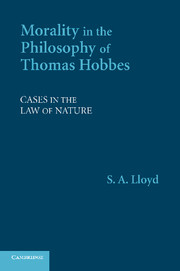Book contents
- Frontmatter
- Contents
- Preface
- Introduction
- PART ONE MORAL PHILOSOPHY, METHOD AND MATTER
- PART TWO FROM PSYCHOLOGY TO MORAL PHILOSOPHY
- PART THREE FROM MORAL PHILOSOPHY TO CIVIL PHILOSOPHY
- 6 Self-Effacing Natural Law and the Duty to Submit to Government
- 7 Fools, Hypocrites, Zealots, and Dupes: Civic Character and Social Stability
- 8 The Unity of Practical Wisdom
- Bibliography
- Index
7 - Fools, Hypocrites, Zealots, and Dupes: Civic Character and Social Stability
Published online by Cambridge University Press: 30 September 2009
- Frontmatter
- Contents
- Preface
- Introduction
- PART ONE MORAL PHILOSOPHY, METHOD AND MATTER
- PART TWO FROM PSYCHOLOGY TO MORAL PHILOSOPHY
- PART THREE FROM MORAL PHILOSOPHY TO CIVIL PHILOSOPHY
- 6 Self-Effacing Natural Law and the Duty to Submit to Government
- 7 Fools, Hypocrites, Zealots, and Dupes: Civic Character and Social Stability
- 8 The Unity of Practical Wisdom
- Bibliography
- Index
Summary
Every great city is as a standing army, which if it be not under the sovereigns command, the people are miserable; if they be, they may be taught their duties in the Universities safely and easily, and be happy.
(EW IV, 439)But if the people see once any ambition in their teachers, they will sooner learn that, than any other doctrine; and from ambition proceeds rebellion.
(EW IV, 346)It is one thing to see that reason requires submission to political authority, and to appreciate the goods achieved by such submission; it is quite another to possess the sort of character that will enable one reliably to act on these perceptions. What sorts of people are they whose characters prevent them from acting in the ways that a stable social peace requires? Who are they that either do not grasp what reason requires or, grasping it, do nonetheless systematically act contrary to those requirements?
In answering these questions, I shall not consider the sorts of ordinary failures of reason that do not importantly affect the stability of political society. Children not yet arrived at the age of reason, persons with dementia and those severely mentally disabled, ordinary criminals, disloyal friends and cheating spouses, those who practice poor health habits or are weak of will within the normal range, and all other politically insignificant violators of the requirements of reason need not be considered in order to assess the viability of Hobbes's political theory. Of the potentially politically disruptive sorts of characters, I shall follow Hobbes in paying special attention to four types: fools, hypocrites, dupes, and zealots. Each of these may actively contribute to social disorder.
- Type
- Chapter
- Information
- Morality in the Philosophy of Thomas HobbesCases in the Law of Nature, pp. 295 - 355Publisher: Cambridge University PressPrint publication year: 2009



